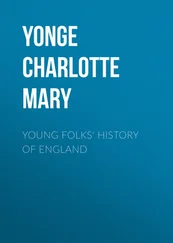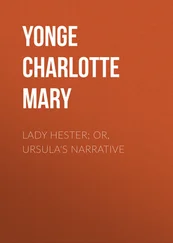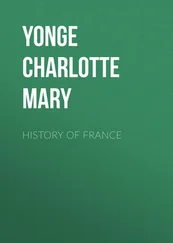Charlotte Yonge - Cameos from English History, from Rollo to Edward II
Здесь есть возможность читать онлайн «Charlotte Yonge - Cameos from English History, from Rollo to Edward II» — ознакомительный отрывок электронной книги совершенно бесплатно, а после прочтения отрывка купить полную версию. В некоторых случаях можно слушать аудио, скачать через торрент в формате fb2 и присутствует краткое содержание. Жанр: foreign_humor, Юмористические книги, literature_19, foreign_antique, на английском языке. Описание произведения, (предисловие) а так же отзывы посетителей доступны на портале библиотеки ЛибКат.
- Название:Cameos from English History, from Rollo to Edward II
- Автор:
- Жанр:
- Год:неизвестен
- ISBN:нет данных
- Рейтинг книги:4 / 5. Голосов: 1
-
Избранное:Добавить в избранное
- Отзывы:
-
Ваша оценка:
- 80
- 1
- 2
- 3
- 4
- 5
Cameos from English History, from Rollo to Edward II: краткое содержание, описание и аннотация
Предлагаем к чтению аннотацию, описание, краткое содержание или предисловие (зависит от того, что написал сам автор книги «Cameos from English History, from Rollo to Edward II»). Если вы не нашли необходимую информацию о книге — напишите в комментариях, мы постараемся отыскать её.
Cameos from English History, from Rollo to Edward II — читать онлайн ознакомительный отрывок
Ниже представлен текст книги, разбитый по страницам. Система сохранения места последней прочитанной страницы, позволяет с удобством читать онлайн бесплатно книгу «Cameos from English History, from Rollo to Edward II», без необходимости каждый раз заново искать на чём Вы остановились. Поставьте закладку, и сможете в любой момент перейти на страницу, на которой закончили чтение.
Интервал:
Закладка:
Her castles, houses, and more especially Westminster Abbey, are of all the colors in the rainbow, and much smaller than the persons entering them, and yet in every figure there is spirit, in every face expression, and throughout, William, Harold, and Odo, bear countenances which are not to be mistaken. Harold has moustaches, which none of the Normans wore. There we find Harold taking his extorted oath; the death of King Edward, the Saxons gazing with horror at the three-tailed comet; the ship-building of yellow, green, and red boards, cut out of trees with most ludicrous foliage; the moon just as it is described; the disembarkation, where a bare-legged mariner wades out, anchor in hand; the very comical foraging party; the repast upon landing, where Odo is saying grace with two fingers raised in benediction, while the meat is served on shields, and fowls carried round spitted upon arrows. Then follows the battle, where William is seen raising his helmet by its nose-guard, and looking exceedingly fierce as he rallies his men; where horses and men tumble head over heels, and where, finally, Matilda broke off with a pattern of hawberks traced out, and no heads or legs put to them. What stayed her hand? Was it her grief at the conduct of her first-born that took from her all heart to proceed with her memorial, or was it only the hand of death that closed her toil, her womanly record of her husband’s achievements?
The border must not be forgotten. It is a narrow edge above and below. At first it is worked with subjects from Phaedrus’s fables (on having translated which was rested the fame of Henry’s scholarship), and very cleverly are they chosen; for, as if in comment on Harold’s visit to Rouen, we find in near neighborhood the stork with her head in the wolf’s mouth, and the crow letting fall her cheese into the fox’s jaws.
Matilda did not upbraid the Normans by working the Parliament of Lillebonne, but she or her designer surely had it in mind when a herd of frightened beasts was drawn, an ape in front of them making an oration to what may be a lion, as it is much bigger than the rest; but as Matilda never saw a lion, the likeness is not remarkable.
Further on are representations of agriculture, sowing, reaping, &c. Wherever there is a voyage, fishes swim above and below, and in the battle there is a border plentiful in dead men.
The Bayeux tapestry—the “Toile de St. Jean,” as it is there called, from the feast-day when the cathedral was hung with it—remained unknown and forgotten, till it was brought to light by one of the last people that could have been expected—Napoleon. He was then full of his plan for invading England, and called general attention to the toile de St. Jean, to bring to mind the Norman Invasion, and show that England had once been conquered.
So she had, but he had to deal with the sons of both victors, and of those who were slain. Now vanquished, Norman and Saxon were one, and by the great mercy of Heaven upon their offspring, the English, not one battle has been fought, since Hastings, with a Continental foe upon English ground.
May that mercy be still vouchsafed us!
CAMEO VIII. THE CAMP OF REFUGE. (1067-1072.)
King of England .
1066. William I.
In the fen country of Lincolnshire, there lived, in the reign of Edward the Confessor, a wealthy Saxon franklin named Leofric, Lord of Bourn. He was related to the great Earls of Mercia, and his brother Brand was Abbot of Peterborough, so that he, and his wife Ediva, were persons of consideration in their own neighborhood. They had a son named Hereward, and called, for some unknown, reason, Le Wake, a youth of great height and personal strength, and of so fierce and violent a disposition, that he disturbed the peace of the neighborhood to such a degree that he was banished from the realm. His high spirit found fit occupation in the armies of foreign princes: and pilgrims and minstrels brought home such reports of his prowess, that the people of Bourn no longer regarded him as a turbulent young scapegrace, but considered him as their pride and glory.
After a brilliant career abroad, Hereward married a Flemish lady, and was settled on her estates when the tidings reached him that his father was dead, and that his aged mother had been despoiled of her property, and cruelly treated, by a Norman to whom William the Conqueror had presented the estate of Bourn. No sooner did he receive this intelligence, than he set off with his wife, and, arriving in Lincolnshire, communicated in secret with his old friends at Bourn, collected a small band, attacked the Norman, drove him away, and re-instated Ediva in his paternal home.
But this exploit only exposed him to further perils. Normans were in possession of every castle around; his cousins, the young Earls Edwin find Morkar, had submitted to the Conqueror; Edwin was betrothed to Agatha, William’s daughter; and their sister Lucy was married to an Angevin named Ivo Taillebois bringing him a portion of their lands, in right of which he called himself Viscount of Spalding. Their submission had availed them little; they, as well as Waltheof, Earl of Huntingdon (son of Siward, and husband of the Conqueror’s niece, Judith), were feeling that a hand of iron was over them, and regretting every day that he had not made common cause against the enemy before he had fully established his power. Selfishness, jealousy, and wavering, had overthrown and ruined the Saxons. Each had sought to secure his own lands and life, careless of his neighbors. No one had the spirit of Frithric, Abbot of St. Alban’s, who blocked up the Conqueror’s march with trunks of trees, and when asked by William why he had injured his woods for the sake of making an unavailing resistance, replied, “I did my duty. If every one had done as much, you would not be here.” According to their own tradition, the men of Kent, coming forward, each carrying a branch of a tree, so that they advanced unperceived, “a moving wood,” so encumbered William’s passage that he could not proceed till he had taken an oath to respect their privileges. London, too, preserved its rights, owing to the management of a burgess, called Ansgard, who conducted the treaty with the Normans and would not admit them into the city till its liberties were secured.
William himself was anxious to be regarded not as a conqueror, but as reigning by inheritence from the Confessor. For this cause, when Matilda was crowned, he caused a Norman baron, Marmion of Fontenaye, to ride into the midst of Westminster Hall, and, throwing down his gauntlet, defy any man to single combat who denied the rights of William and Matilda. He himself took the old coronation oath drawn up by St. Dunstan, and pledged himself to execute justice according to the old laws of Alfred and Edward.
But William, whatever might be his own good intentions, was pressed by circumstances. He had lured his Normans across the channel with hopes of rich plunder in England, and knight and squire, man-at-arms and archer, were eager for their reward. Norman, Breton, Angevin, clamored for possession: families of peasants crossed the sea, expecting, in right of their French tongue, to be gentry at once, and lords of the churl Saxons; while the Saxons, fully conscious of their own nobility, and possessors of the soil for five hundred years, derided them in such rhymes as these:
“William de Coningsby
Came out of Brittany
With his wife Tiffany,
And his maid Manfas,
And his dog Hardigras.”
But the laugh proved to be on the side of the new comers, and the Saxon, whether Earl, Thane, Franklin, or Ceorl, though he could trace his line up to Odin, and had held his land since Hengist first won Thanet, must give place to Hardigras and his master. And though our sympathies are all with the dispossessed Saxons, and the Normans appear as needy and rapacious spoilers, there is no cause for us to lament their coming. Without the Norman aristocracy, and the high spirit of chivalry and adventure thus infused, England could scarcely have attained her greatness; for, though many great men had existed among the unmixed Anglo-Saxon race, they had never been able to rouse the nation from the heavy, dull, stolid sensuality into which, to this day, an uncultivated Englishman is liable to fall.
Читать дальшеИнтервал:
Закладка:
Похожие книги на «Cameos from English History, from Rollo to Edward II»
Представляем Вашему вниманию похожие книги на «Cameos from English History, from Rollo to Edward II» списком для выбора. Мы отобрали схожую по названию и смыслу литературу в надежде предоставить читателям больше вариантов отыскать новые, интересные, ещё непрочитанные произведения.
Обсуждение, отзывы о книге «Cameos from English History, from Rollo to Edward II» и просто собственные мнения читателей. Оставьте ваши комментарии, напишите, что Вы думаете о произведении, его смысле или главных героях. Укажите что конкретно понравилось, а что нет, и почему Вы так считаете.












